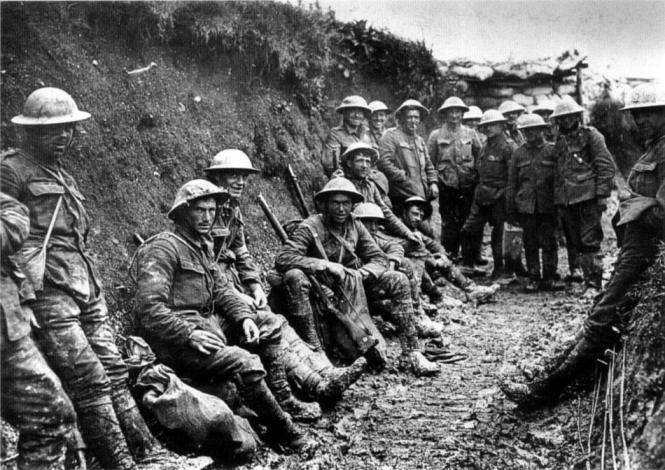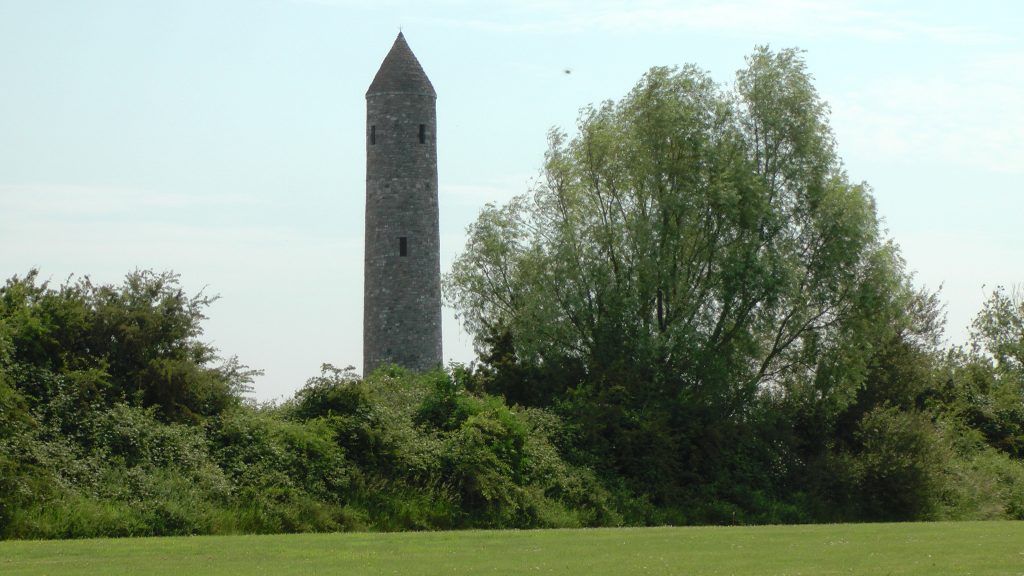
Jackie Barr, International School for Peace Studies, provides us with an overview of an organisation devoted to peace and reconcilation.
The International School for Peace Studies’ Schools Links Project brings together students from throughout the island of Ireland and indeed the world, by way of its “Messines Experience” programme, which takes place generally in Northern Ireland, the Republic of Ireland, Belgium and France, It has previously been used to bring together a community of Greek and Turkish Cypriots in Cyprus.
Students from participating schools are introduced to one another through a series of fun, exciting and enlightening activities, designed by our team of highly experienced trainers to promote positive relationships between the assorted participants.
During the programme students are given the opportunity to experience “living learning”, meaning they are fully submerged in a world that allows them to explore their own and each other’s past, present and shared future.
Through active participation in the programme, students learn about the key principles necessary in establishing a peaceful, all-encompassing, prosperous, stable and just society, built on the realization of interdependence, respect for diversity, tolerance, mutual trust, understanding, and the protection of equality for everyone.
The “Messines Experience” is not designed to change people’s politics, persuasions or personal beliefs. Rather it offers a vision; one that rejects all forms of violence and advances peaceful dialogue as the only means of creating change.
All activities take place in safe, supportive, inclusive environments that enable students to acknowledge the existence of the various conflicts that affect their lives. At various stages they are provided with opportunities to freely discuss in a safe and sensitive manner what can be sensitive issues.
The programme does not seek to take learning out of the classroom, rather it seeks to enlarge and enhance the learning process. Students benefit in numerous practical ways – bringing subject matters alive, advancing social skills, encouraging cross-border and cross-cultural cooperation, implanting confidence and empowering students to achieve their aspirations and become active citizens at all levels.
Students completing the programme receive a nationally recognised qualification in the “Messines Experience” programme accredited by NIOCN at either levels 1, 2 or 3.
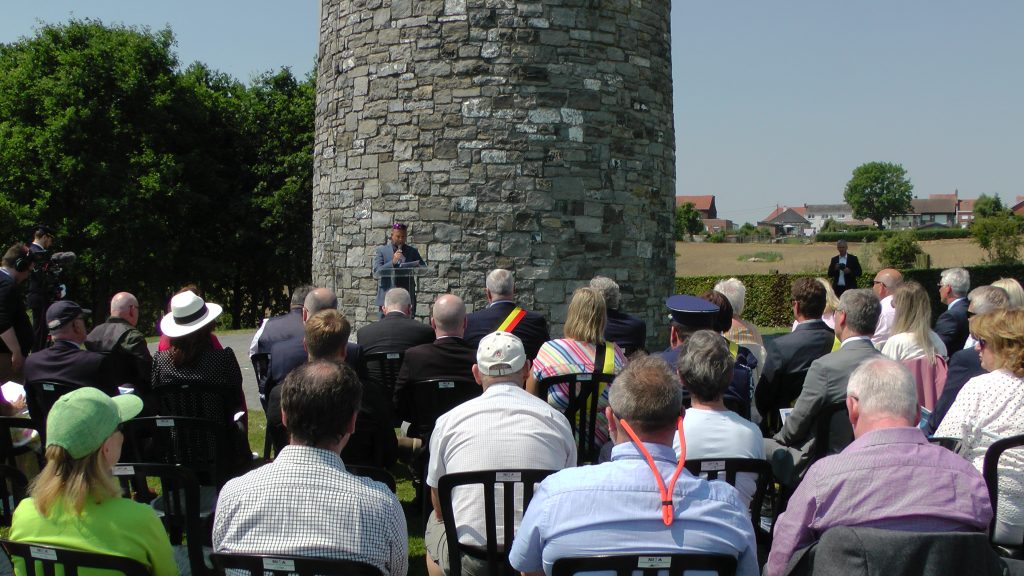
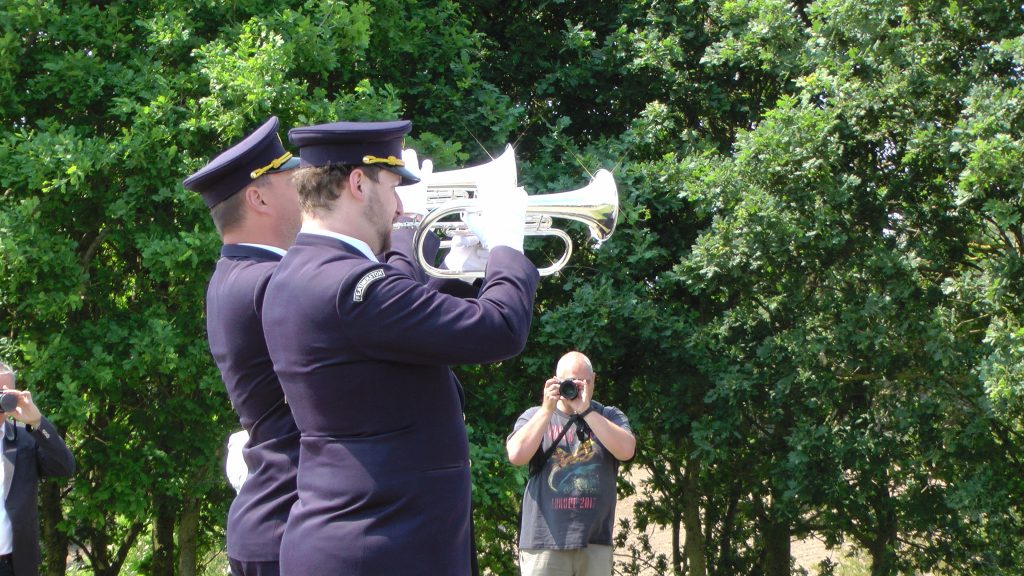
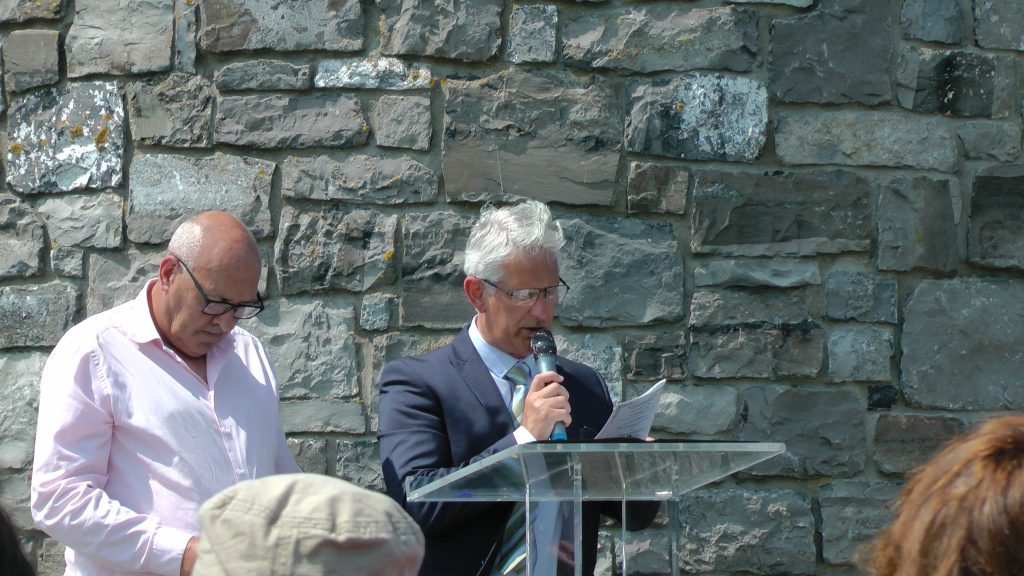
The recent anniversary of the Island of Ireland Peace Tower brought everyone together that had been at the forefront of the building of the momunment to local and international stakeholders.
Testimonials
Messines is not just a history lesson; it is a transformation of understanding, attitudes and relationships best described in the Belfast Telegraph article by Susan Keown, Head of History at Lisneal College.
“A heart warming experience””
Off to Belgium for six days – what were my expectations?
At least it would be a welcome break and an opportunity to see the battlefields I had taught about for 13 years.
At best it would mature the pupils, enlighten them to the huge loss of life and give them a chance to experience it with pupils from another tradition.
I was not prepared for the major life change these pupils were about to undergo. The young people went to Messines as one kind of person and came back another, fired up to promote change and tolerance in their own country.
The Messines programme is so meticulously thought out that those who take part in the six days are taken on a journey, which describes and explains the horror war, the huge loss of life and tells the true stories of Nationalist and Unionist, Protestant and Catholic – how they fought side by side and died side by side, how they supported each other against the common enemy and how some tried to save each other.
When the pupils stood still at the grave of Major Willie Redmond, the brother of John Redmond leader of the Nationalist Party in Ireland at the time, and heard of the endeavours of John Meeke to save his life, they were almost embarrassed to admit any differences they had. It was so clear that our petty differences at home need to be banished so that we can live the lives that these men were so callously deprived of.
The shift in attitudes, a shift that I have been battling so hard to create in my own classroom for over a decade, was happening in front of my own eyes in the space of six days and heart warming it was to see it take place with such ease.
The programme is a fine balance of study and socialising which gave the pupils an experience they will never forget.
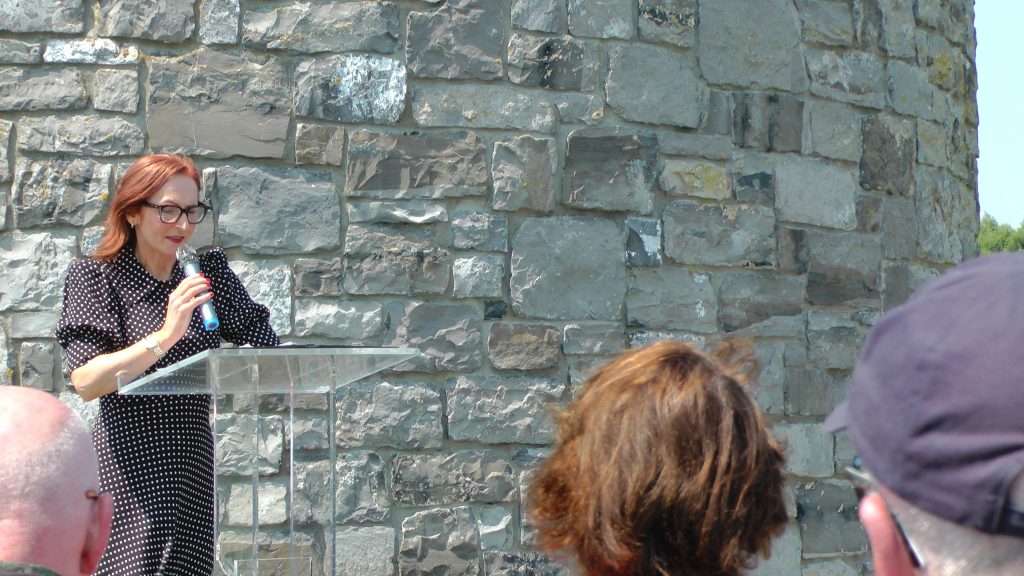
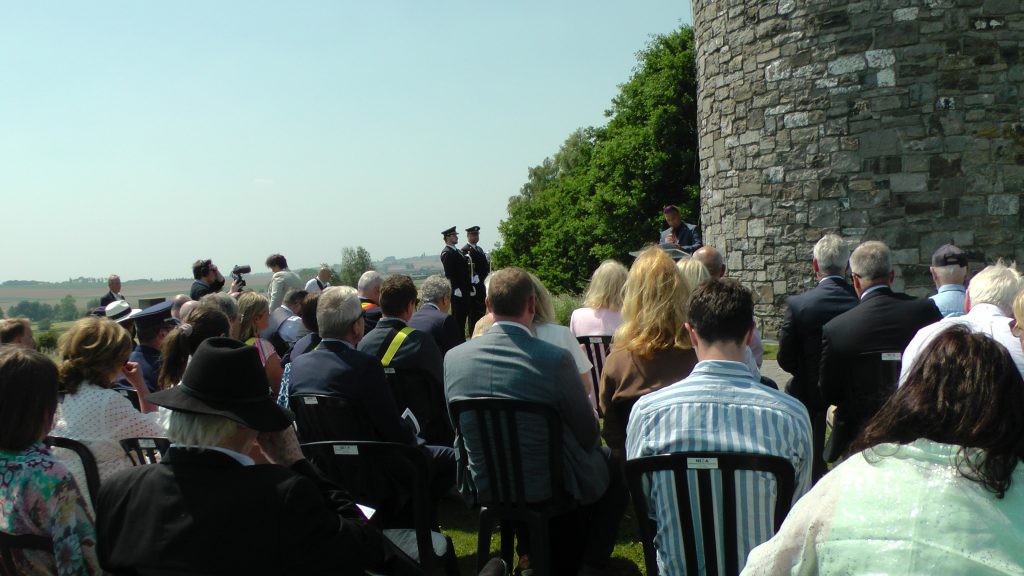
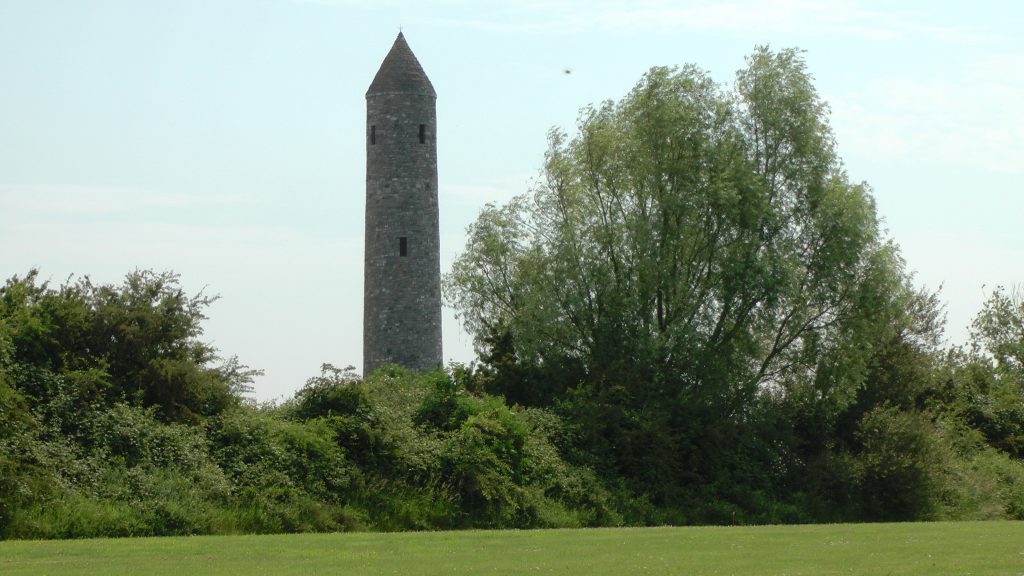
Highlights? There were so many.
One example is of the moment when we stood in Poelkapelle Cemetery, when Ruth McPhillips began to sing the ballad of the youngest soldier to die in World War I – John Condon, a 13 year old, nationalist from Waterford.
When her beautiful song was over no one could speak – no words could express the sadness we all felt – moments of remembrance like these are so rare indeed in this hectic 21st century.Mr Glen Barr has tapped into the past to heal the present. I hope that this schools’ project goes from strength to strength and that more and more pupils get to experience Messines – it can have nothing but a positive effect on the future of relations in this country. It has been a privilege to be part of the process.”
United in Remembrance 2008 Remarks
Oakgrove Student During my time in Belgium a lot of the experiences we had hit me very hard. For me personally, the German Cemetery at Langemark was the most shocking. There where 45,000 bodies placed in a cemetery the size of a football pitch. Everything was just squashed in. Every grave was just a slab on the ground with not just one body but up to 15 bodies per grave.
Nothing however, was more hard hitting than the mass grave in the middle of the cemetery. In a small plot were the bodies of 25,000 men who were merely tossed into a hole in the ground. It hit home to me then how harshly the German men were treated after the War.
Therefore, on this Remembrance Day I aim to not just remember those allied soldiers that died but also those German soldiers who fought and died bravely for their cause.
I learned a lot from my experience in Belgium and I hope to use my experiences to continue to break down the boundaries in the communities here.
St. Cecilia’s Student I think it is fair to say that each of us standing here today have gained an awful lot from the “Messines Experience”. Although the students involved came from different political backgrounds, we were able cast our differences aside, and lasting friendships were formed within the group.
Obviously, the purpose of the trip was to learn about the Great War and the impact it had on so many people’s lives, however, I was also able to gain something more – standing in the actual battlefields really brought home the sheer atrocity of war and the reality of what all those who served, and their loved ones had to suffer.
The experience was an emotional learning curve which I’m sure none of us will forget. I have gained a deeper understanding of the tradition of Remembrance and of why we are all gathered here today. I feel that it is important that we should remember all the men of the war in the way which they would have wanted – as brothers – as they fought and died together, side by side.
Lisneal Student We have come together today as kindred spirits, to remember those from Northern and Southern Ireland who marched together, fought together and died together during the First World War.
We are also here to show that if the 36th Ulster Division and the 16th Irish Division could unite under the harshness of war then we who come from Unionist and Nationalist backgrounds can unite in remembrance of those brave men, not only for our sakes but also for the sake of those who will follow in our footsteps. I only hope that many more students get the same opportunity.
The Messines Experience holds something special for us all. It is because of our past that we can make a change to our future.
We are told that Northern Ireland is moving to a better future, one where people can engage with each other normally. We look to that, and we hope for that. If that bright future comes, we cannot think that it will just happen or that it will be easy. But if young people from different traditions are beginning that journey, then older people have a duty to go with them. There is a great saying from an American poet: “Do not go where the road may lead, rather go where there is no road and blaze a trail.”
I want to thank those who through today’s events are blazing that brave, bright trail to a better future, shared by all of us.

